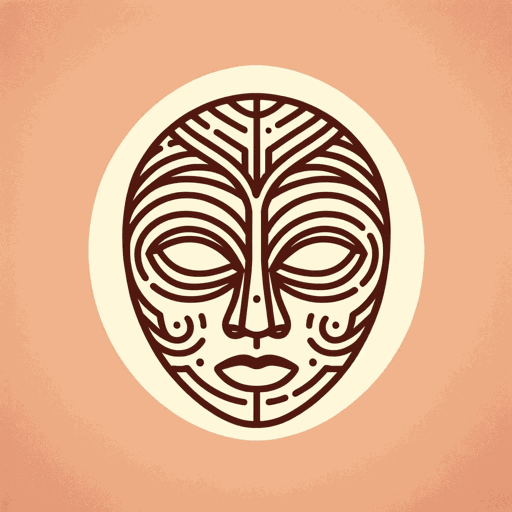18 pages • 36 minutes read
Léopold Sédar SenghorPrayer to the Masks
Fiction | Poem | Adult | Published in 1945A modern alternative to SparkNotes and CliffsNotes, SuperSummary offers high-quality Study Guides with detailed chapter summaries and analysis of major themes, characters, and more.
Themes
Honoring Our Ancestors Strengthens Us
Senghor uses “Prayer to the Masks” to look back at his ancestors and history. The poem concludes with a renewed sense of vigor, signifying that honoring the past helps us in the present. Early in the poem, as the narrator prays to the masks—the spirits of the dead—the spirits are portrayed as powerful and meaningful: “You guard this place, that is closed to any feminine laughter, to any / mortal smile. / You purify the air of eternity, here where I breathe the air of my / fathers.” (Lines 6-9). The spirits of the past guard and purify, imbuing them with positive attributes that the narrator acknowledges and admires. In their eternal state, the spirits of the dead are smooth and perfect, and the narrator’s very existence is indebted to them: “Masks of maskless faces, free from dimples and wrinkles. / You have composed this image, this my face that bends” (Lines 10-11). Again, the narrator’s ancestors are beautiful in their eternity and aspects of their admirable traits are impressed on the narrator’s appearance, showing a deep appreciation for one’s ancestry. Throughout the first half of the poem, Senghor allows the narrator to engage and praise their ancestors’ spirits. The spirits have positive attributes, agency, and beauty, and they pass these traits onto the living, showing the beneficial relationship that can flourish when a person honors the past.

